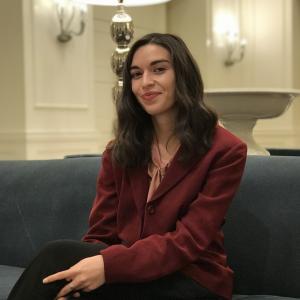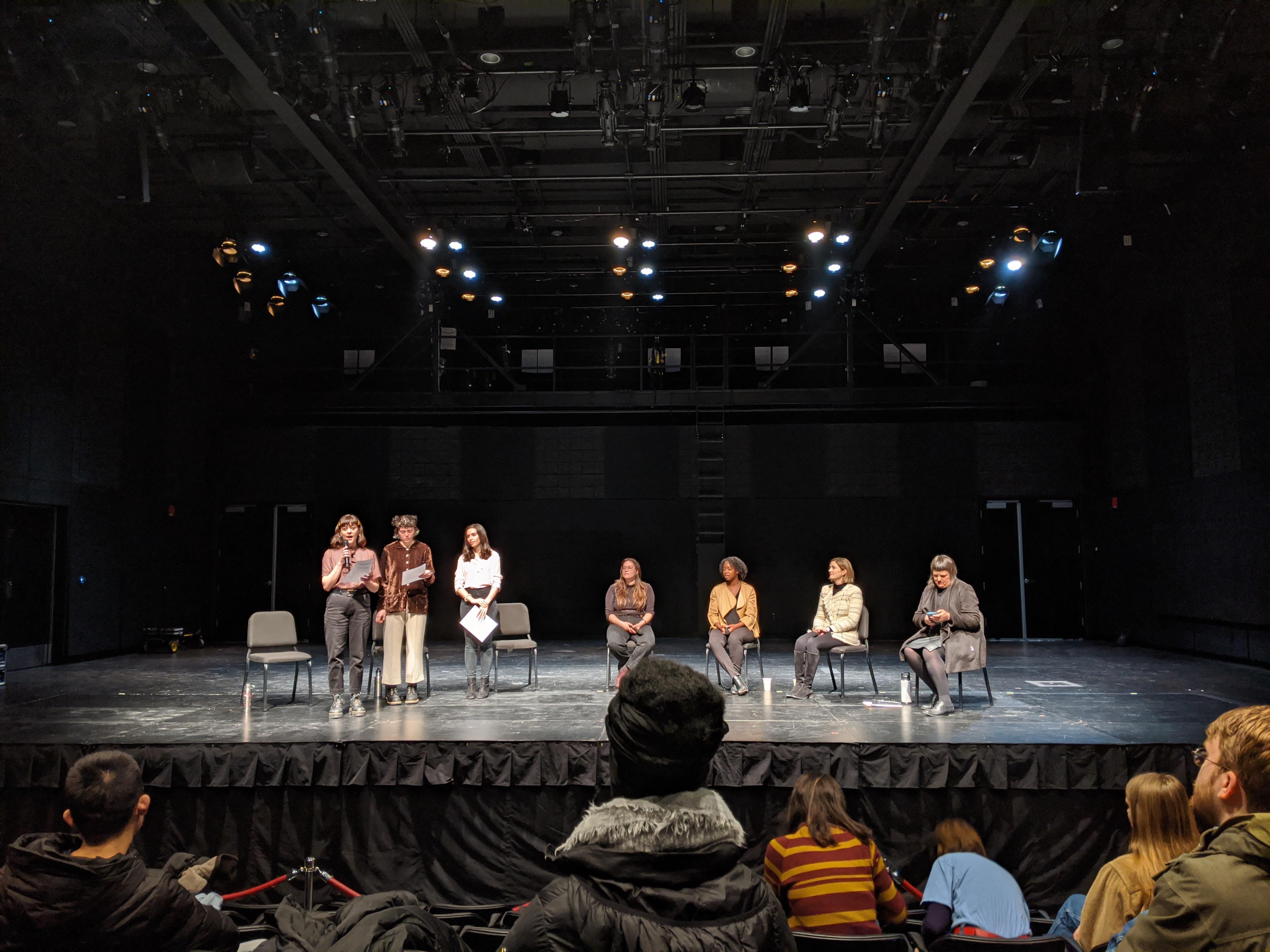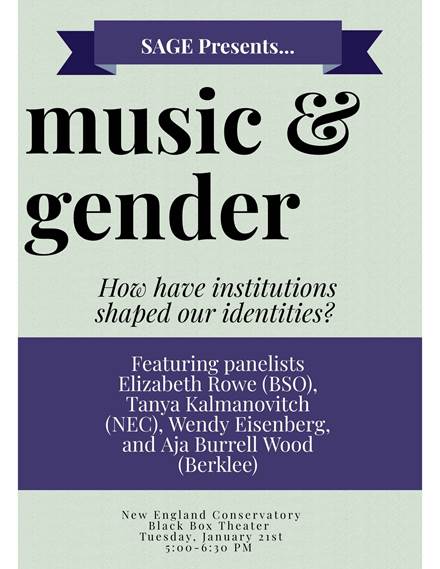Q&A with Cheyanna Duran ’21: “Community is vital to our safety and survival.”
Third year oboist Cheyanna Duran discusses a recent panel on Music & Gender hosted by SAGE (Students Advocating for Gender Equality).
How do you find and build community? For many at NEC, student groups offer a chance to build community around shared identity, event organizing, advocacy, and more.
SAGE, or Students Advocating for Gender Equality, aims to “help the voices of non-male students be heard” through campus advocacy, a concert series, and informative events. Meet SAGE co-president Cheyanna Duran, who shares her reflections on SAGE's recent panel titled “Music & Gender: How Have Institutions Shaped Our Identities?”

First, would you introduce yourself?
My name is Cheyanna Duran (she/her). I am a third year oboe major and liberal arts minor, concentrating in gender and sexuality studies. I’ve been a part of SAGE for three years, but this is my first year as a president.
Tell us about the panel that SAGE recently hosted on Music & Gender.
The topic of the panel was how institutions have shaped our identities, specifically music institutions but also those that permeate our everyday lives.
We invited Aja Burrell Wood, the artistic director of Jazz and Gender Justice at Berklee, Elizabeth Rowe, the principal flutist of the BSO, Tanya Kalmanovitch, a professor at NEC and ethnomusicologist, and Wendy Eisenberg, a performer, improvisor, and NEC alum, to join our conversation.
We really wanted to have panelists that would appeal to all majors and intersections, not only at NEC, but Boston. I was so happy with the turnout and how many people were brought together.
After the panel, an NEC student approached me and thanked me for making a space to hear mentors speak about sexual harassment, because she feels like she can’t talk with her friends about it.
That is exactly why SAGE exists, and why we wanted to have this panel; to help remind people that they are not alone.
What was discussed at the panel? What's something you wish people knew about music & gender?

I wish that more people understood that gender is fluid. Some people feel most comfortable identifying outside of the gender binary. I think that faculty and administrators should be more mindful and understanding of how they are perpetuating gender roles with the platform they have. For example, not assuming people’s pronouns or sexual orientation.
Also, I think it is extremely important for all people in music to understand how marginalized womxn are in music. It is difficult to be anything but white, straight, and male in the music industry. We operate in a world that has profited off of discrimination and violence, and this has stayed silent for far too long.
Educators must do a better job at considering how they treat their students, and take accountability for creating an inclusive environment that encourages people of all genders, races, and sexualities [to feel] that they belong.
At the panel there was quite a bit of discussion on the ideologies of domination that perpetuate these norms. For example, how patriarchy is saturated into everything in our lives. As Tanya Kalmanovitch said, ‘it is the air we breathe.’
Once you notice how the patriarchy has affected your life, it’s not hard to see and feel it everywhere you go. In my own life, I find it impossible to attend concerts without noticing what kind of diversity is present on the concert stage, in the programming, and in the audience.

Likewise, I felt the discussion regarding sexual harassment was extremely relevant. Where there are power imbalances, there will always be abuse of power, and this is not absent in music or at NEC. Staying silent about these issues does not help or educate anyone, it is dangerous to not acknowledge this kind of behavior. It’s something I hope to keep talking about during my time as a leader of SAGE.
What motivated you to get involved with SAGE?
It’s very easy and common to feel alone as someone who identifies as a woman in music. I think that community is vital to our safety and survival.
I became a president of SAGE this year because I wanted to help be a part of creating a space that supports and uplifts the lives and art of people who feel silenced.
Has your involvement in SAGE helped you grow? If so, in what way?
SAGE has really helped me grow as a leader in the NEC community.
I’ve met so many different people who I wouldn’t ordinarily spend time with because of how departments are separated at school. Even just my co-presidents, Jolee Gordon and Grace Ward are in the jazz and contemporary improvisation departments, and without SAGE it’s possible we wouldn’t spend any time together.
It has also helped me become more accountable and brave in making decisions in how they relate to my NEC experience. I speak up a lot more when I see things that make me uncomfortable.
Especially being a leader in SAGE, I take it as a responsibility to call out incidents that I think are wrong. I report more. I have more difficult conversations. It’s been very rewarding and made me feel more in control of my life.
Learn more about SAGE and other student organizations on campus
